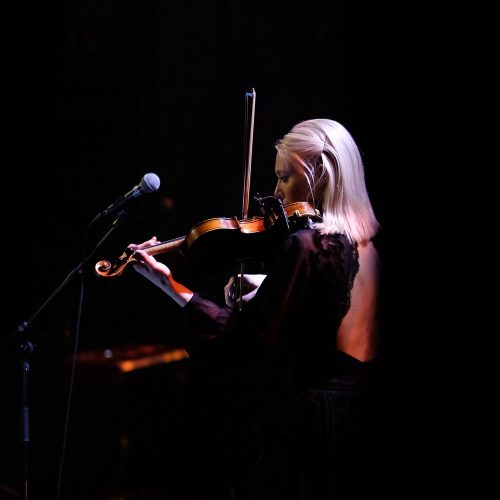Piano ballads have been a staple of modern pop music for almost as long as there’s been pop music, which makes it easy to forget how hard they are to pull off. Since most piano ballads are stripped down and minimal, they leave no room for error: if the vocals are a bit strained, or if the lyrics are a little clunky, there’s nowhere to hide. If you add strings, that’s something else to account for, as a syrupy arrangement can drown an earnest ballad in lite-FM cheese. There’s no magic formula for making a piano ballad work, just as there’s no magic formula for making any sort of music, but it’s deceptively easy to screw up: for every tear-jerking “Someone Like You”, there’s a mawkish “Someone You Loved”.
A round of applause, then, for Fiona Brice, who released the tender, haunting ballad “Last Light” a month ago and absolutely nailed it. In fact, “Last Light” is Brice’s first non-instrumental solo release, which shocked me: I would have guessed she had been writing ballads for years before releasing this one. But Brice actually hails from the world of classical music, orchestrating concert hall performances for the likes of Florence + The Machine and playing violin for Jay-Z and Beyoncé. While some pop from the classical world feels fussy and mannered, “Last Light” feels perfectly at ease in its own beauty.
More important than just the beauty itself, however, is the way Brice uses it. She takes care never to coast on one sound for too long, breaking up the lullaby-esque chord sequence with some subtle dissonance here and there to keep our attention. She adds strings, but she’s careful not to let them overwhelm the song, letting them shimmer like a night light in the background. And she harmonizes with herself as she sings the title line, “as the last light fades,” her multi-tracked vocals gentle enough to soothe us even as we’re faced with an uncertain fate.
As any tarot expert will remind you, the Death card does not necessarily refer to literal death. (No card does, really, although the Tower comes closest.) Instead, it symbolizes change, sudden or gradual, welcome or unwelcome. Like death itself, change is one of the few constants in life: you can dig your heels in, you can guard yourself against it, you can pretend it will never come, but you will only delay the inevitable. Brice herself describes “Last Light” as “a reflection on accepting loss and change,” and while the song’s elegiac tone suggests some kind of death it never comes out and says it. Even minor changes can feel like a death in some way, but there can be dignity and peace in that, as well. “Last Light” is proof.







